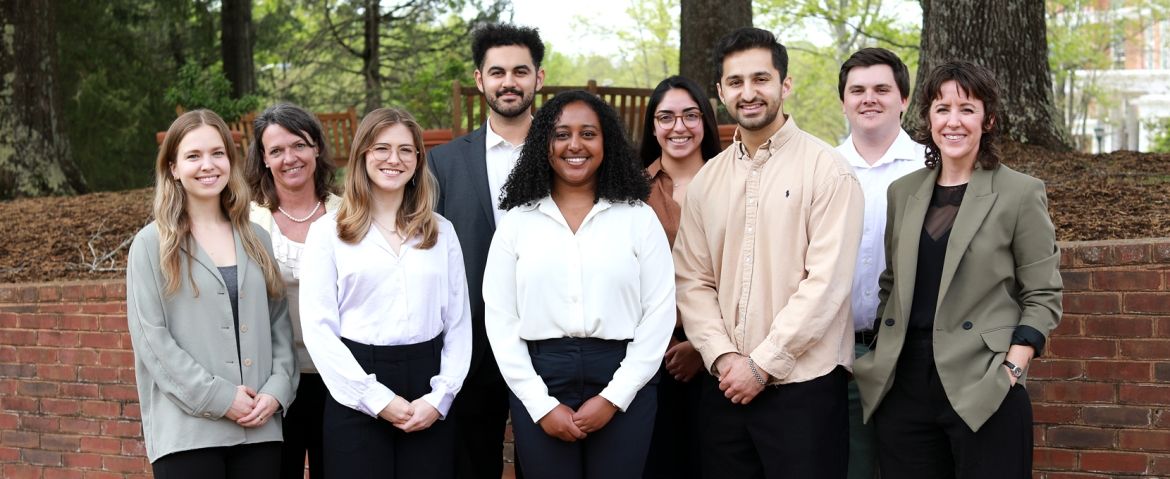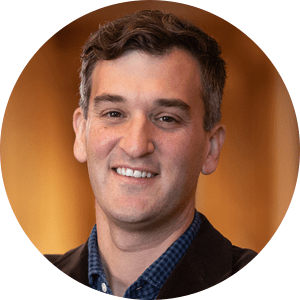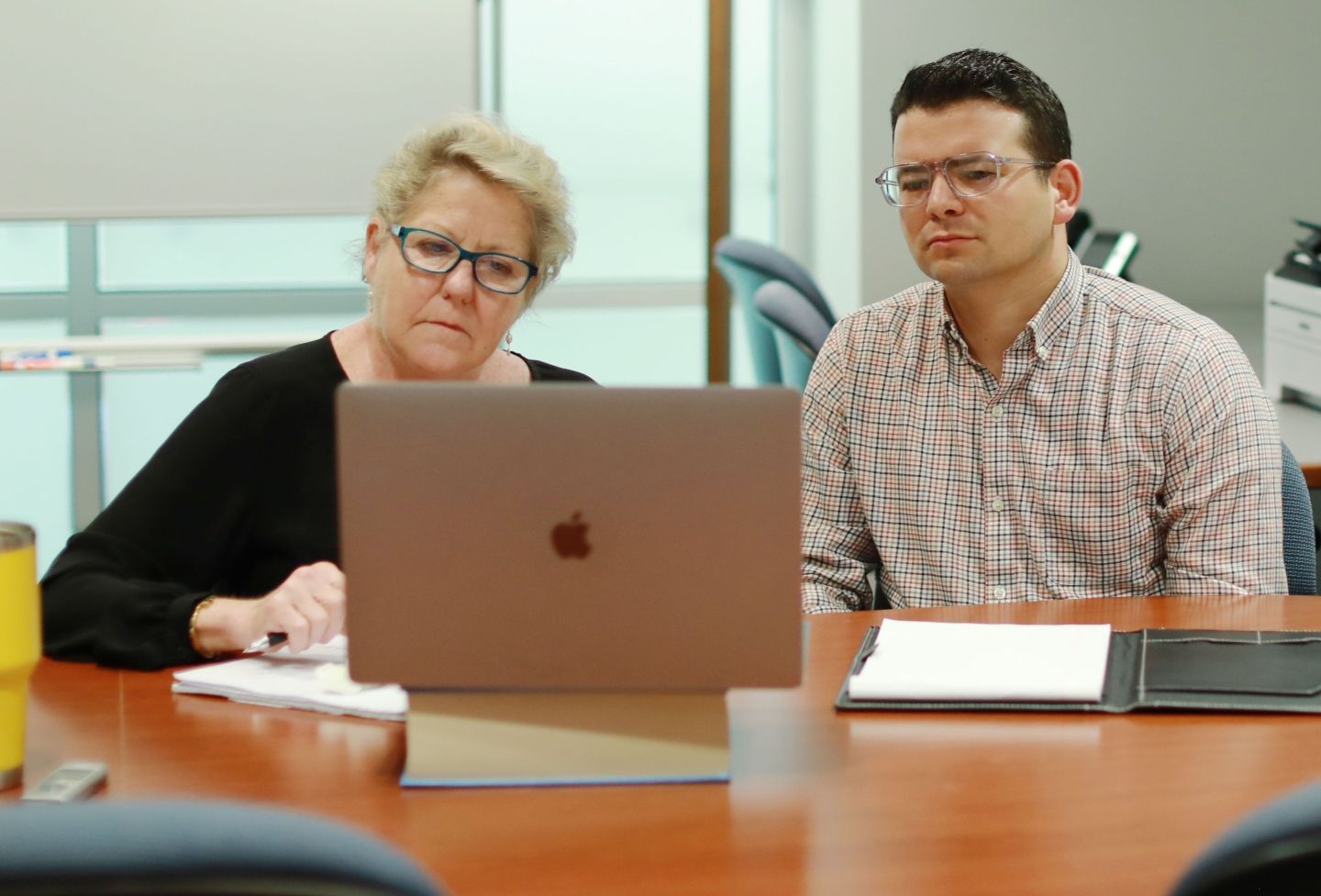Eight clinic students at the University of Virginia School of Law taught business law classes to local incarcerated people in April through a partnership with Resilience Education.
UVA Law professors Kelly Orians, director of the Law School’s Decarceration and Community Reentry Clinic, and Thomas Frampton worked with the nonprofit’s co-founder and Executive Director Tierney Fairchild to launch the initiative. The program built upon Resilience Education’s decade-long efforts to educate incarcerated people in the Fluvanna Correctional Center for Women.
“Our prisons are full of people who desperately want to learn, grow and improve themselves,” Orians said. “There are many days in the life of an attorney — and law student — when you wonder if you are making a difference, but every day we taught at the prison we felt certain it was time well spent.”
Orians had met Resilience Education’s co-founder — Darden School of Business professor Gregory B. Fairchild, dean and CEO of UVA | Northern Virginia — a few years before joining Virginia’s faculty. She quickly became interested in the group’s work to make high-quality business curricula more accessible to reduce the likelihood of re-incarceration, and got in touch as soon as she learned she would be joining the faculty of the Law School. Resilience Education had previously been in communication with the student group Virginia Law in Prison Program, which also partnered with the clinic.

Given the established success of Darden’s in-prison program — Darden PREP, in which MBA student instructors taught business courses — Resilience sought and received approval from the Virginia Department of Corrections to pilot the business law workshops at the Fluvanna prison.
During her first semester teaching, Orians offered the new teaching opportunity to her students, who quickly opted to help. The students created the legal memos that Resilience Education helped turn into business case studies. During Orians’ clinic this year, law students developed lesson plans to accompany the cases, shadowed Darden MBAs teaching at Fluvanna and attended training sessions to prepare for the teaching experience. The work culminated with the law students teaching nine classes in April.
Orians said having deep knowledge of a legal concept is not the same as being a good teacher. Working alongside Resilience Education “was crucial to help us learn how to not just be knowledgeable, but to be educators as well,” she said.

“The best teachers are those who understand and respect the lived realities of their students,” Orians said. “In order for my students to be the best teachers, they have to challenge themselves to understand people with backgrounds that are often very different from their own while also appreciating and uplifting the different perspectives incarcerated learners bring to the classroom.”
The UVA students spent hours with one another brainstorming Socratic questions and ideas for classroom exercises to bring legal concepts to life, according to Io Jones ’24.
“I loved the creativity required to turn a five-page case into a meaningful and engaging lesson,” Jones said.
Jones added that she was grateful for the incarcerated students who brought their own enthusiastic insights, knowledge and engagement to the table.
“It elevated the experience for us as law students and classroom teachers,” she said.
Sumit Kapur ’24 said he found the incarcerated students to be welcoming and eager to learn, often reading cases more closely than many law students, and Asha Chadha ’25 said she hopes to stay connected to the incarcerated community.
“Recently incarcerated people have so much to offer society, but also need support to make that transition,” Chadha said. “As law students, I feel that we have a responsibility to use our position to educate others and share our legal knowledge in hopes that it can provide others with some level of agency.”
The pilot program proved to be more successful than Orians and Frampton had hoped. Thanks to feedback from the learners, the student teachers have identified new topics to cover, including employment discrimination and contract law. Over the summer and into the fall, they will continue to develop the curriculum with the aim of making a semester-long credited course available through UVA’s School of Continuing and Professional Studies, adding to the current six credits available to incarcerated learners in Virginia. They also plan to start teaching at other prisons throughout the commonwealth.
The Law School program was “the perfect blend of Darden-type case-method teaching and legal concepts that bring essential reentry skills to life for our incarcerated learners,” Tierney Fairchild said. “Kelly, Thomas, Dean [Risa] Goluboff and the greater Law School have been true partners, and we look forward to developing a full course to add to our offerings.”
The pilot was made possible by seed funders S. Sonjia Smith ’82 and Barbara Fried, as well as the Jefferson Trust, UVA’s Provost’s Office and the Law School.
“I think all law students should be required to at least visit a prison prior to graduation,” Orians said. “The students who attend UVA Law will go on to be federal judges, business leaders, senators and congresspeople, and will have a significant and long-lasting impact on the criminal legal system. Getting a closer view of the day-to-day reality of prison will give them the insight they need to wield that power in a way that best fosters health and safety in our communities.”
Founded in 1819, the University of Virginia School of Law is the second-oldest continuously operating law school in the nation. Consistently ranked among the top law schools, Virginia is a world-renowned training ground for distinguished lawyers and public servants, instilling in them a commitment to leadership, integrity and community service.


